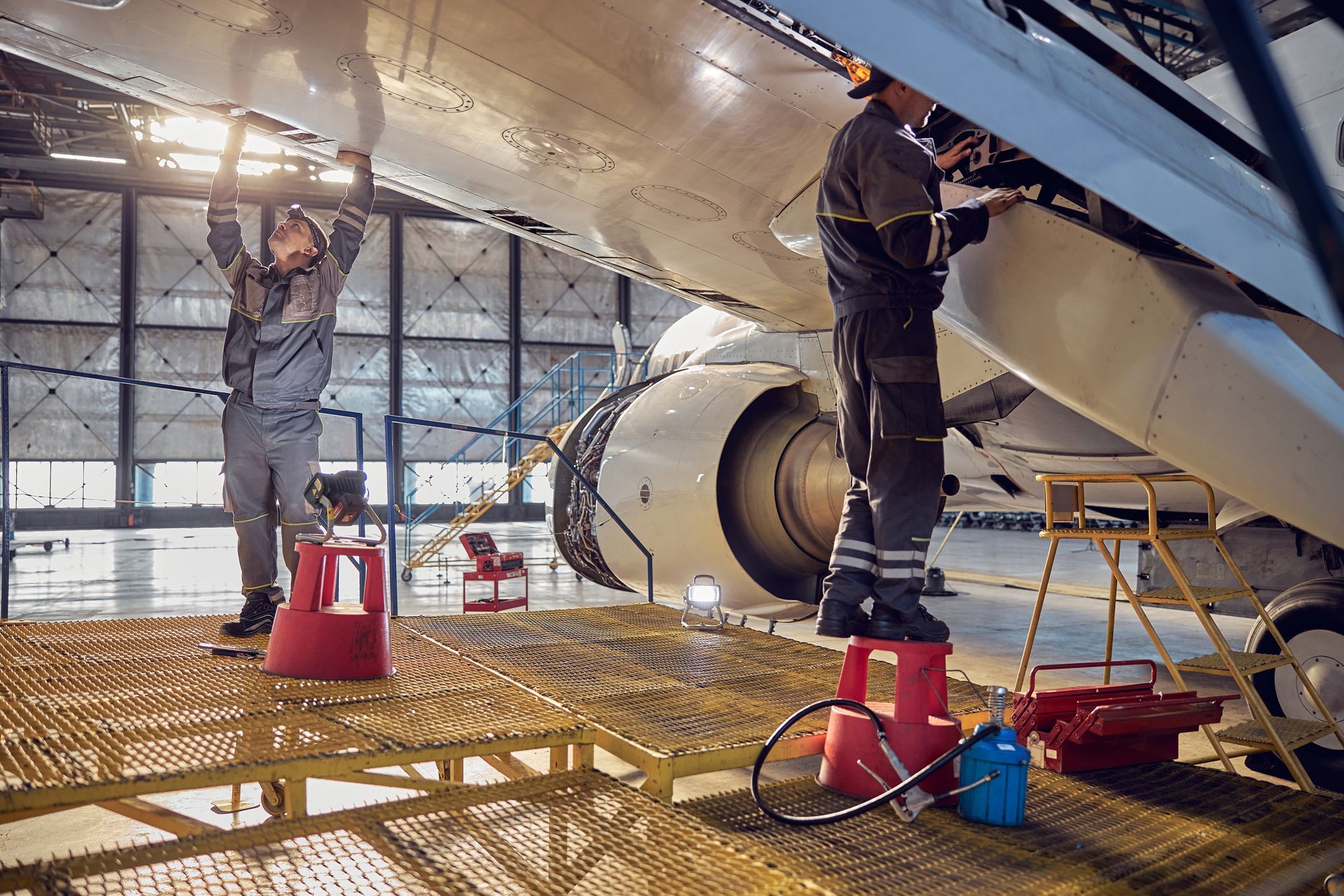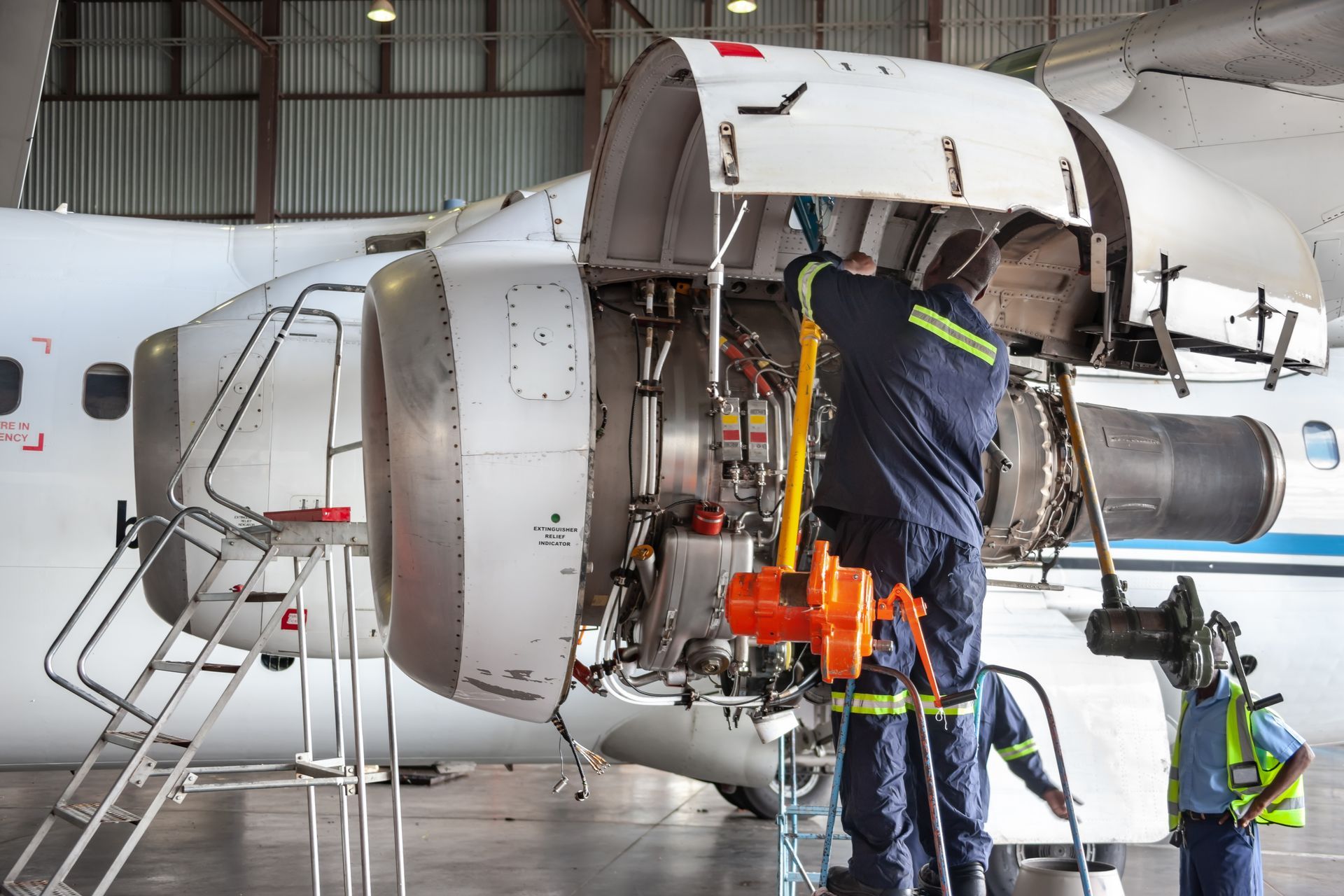Why Work In The Aerospace Industry?
The aerospace industry is a dynamic and ever changing space, with an abundance of exciting career opportunities.
2023 alone saw a ‘record industry revenue of $829 billion’, emphasising the overall strength of the aerospace and
defence sector.
If you’re considering a career in the aerospace sector, you might be looking to understand what a career in aerospace might offer you and
why it’s an appealing industry to work in.
In this guide, we’ll cover some of the key reasons why you should consider a career in the aerospace industry.
Reasons to work in the aerospace industry include, but are not limited to:
- It’s an ever-evolving industry
- Career development opportunities
- The demand for skills continues to grow
- Increased job security
- Getting to work with new technology
1. It’s An Ever-Evolving Industry
One of the biggest reasons to work in aerospace is that it’s an ever-evolving industry.
The sector is always changing, with innovation driving technological advancements and countless exciting developments.
From the increased pressure to improve aviation sustainability and
achieve net zero by 2050
to the development of space exploration initiatives, the industry is incredibly fast-paced.
Organisations must remain agile and embrace innovation to be able to keep up.
What’s more, the industry is packed with fresh career opportunities to satisfy ambitious aerospace engineers, which leads us to our next point.

2. Career Development Opportunities
Another key reason to work in the aerospace industry is that there are endless career development opportunities.
From
engineering and design to manufacturing and project management, there are several exciting opportunities for growth and development for aerospace professionals, depending on your interests and skills.
What’s more, the skills you hone and develop will be transferable, making it easier for you to climb up the ladder throughout your aerospace career.
That said, if you’re an ambitious person looking for a career with many opportunities to innovate, the aerospace sector could be for you.
Are you interested in working in the aerospace industry?
Meritus can help.
Our aerospace recruitment consultants have an unparalleled understanding of the Aviation industry and have a depth of expertise to help you find the perfect role.
Get in touch with our consultants today.
3. The Demand For Skills Continues To Grow
The aerospace industry is facing the challenge of talent and skills shortages due to rapid advancements in technology.
One survey taken by European aerospace organisations has shown that ‘39% of the respondents face a skills gap issue, both for classical skills such as management, technology, IT and engineering and for emerging skills like AI, data science and machine learning’.
Moreover, the ageing workforce is a persistent challenge the sector is facing. Any retirement in the aerospace and defence industry will only exacerbate this demand for skills, representing a wealth of opportunity for budding aerospace professionals.
Are Aerospace Engineers In Demand?
In short, yes. In 2025, there is a significant demand for aerospace engineers, and this is likely to remain strong as the demand for innovative aerospace technology continues to grow.
While demands can change, aerospace professionals are currently in high demand, providing ample career choices for young professionals looking to get into the aerospace industry.

4. Increased Job Security
A key reason to work in the aerospace industry is the job security it offers.
As technology continues to advance, the aerospace industry continues to grow, meaning that there are not only an increasing number of job opportunities, but they’re also secure.
For instance,
between 2023-2033, the aerospace industry is expecting a 6% increase in employment for aerospace engineers alone.
As such, securing a job role in aerospace now could mean that you’ll benefit from job security for many years ahead.
5. Getting To Work With New Technology
Lastly, if you’re someone who’s intrigued and excited by technological advancements, a job in the aerospace industry could be the ideal choice for you.
From artificial intelligence (AI) to autonomous systems, cutting edge technologies are transforming the industry and are placing budding aerospace professionals right at the heart of the action.
The sector is constantly pushing the boundaries of what can be achieved, with aerospace professionals striving to improve efficiency, safety, and sustainability in aviation.
Pioneering developments in aircraft and aerospace technology are sure to keep you engaged not only in your job role but also in the industry as a whole as it continues to introduce new technologies.

How We Can Help
Meritus is the fastest growing Aerospace, Defence and Space brand in the UK.
Our aerospace recruitment consultants have years of experience in matching the world’s qualified experts and leaders in defence, space, and aerospace to amplified career opportunities.
If you’re seeking a new career in aerospace,
contact us at
info@meritustalent.com to find out how we can assist you.












